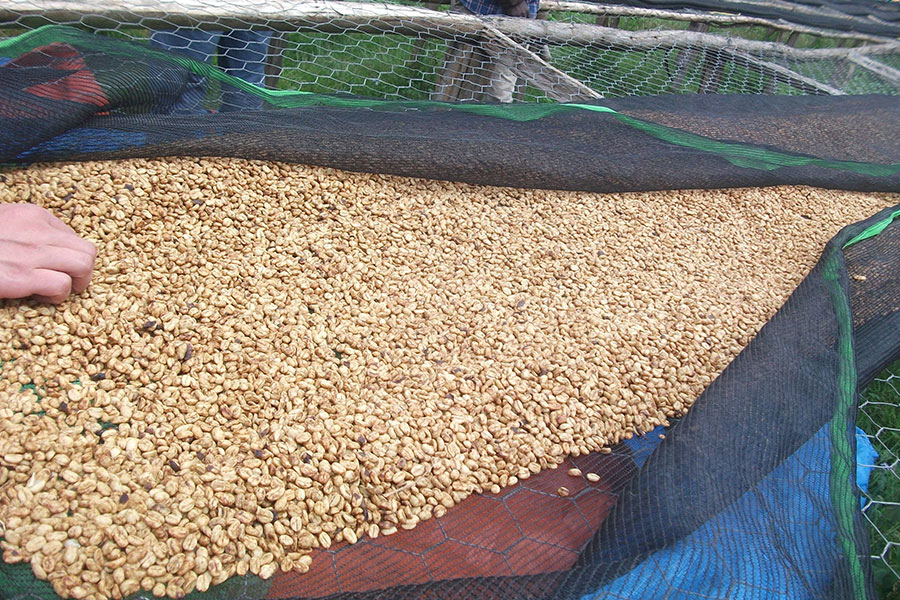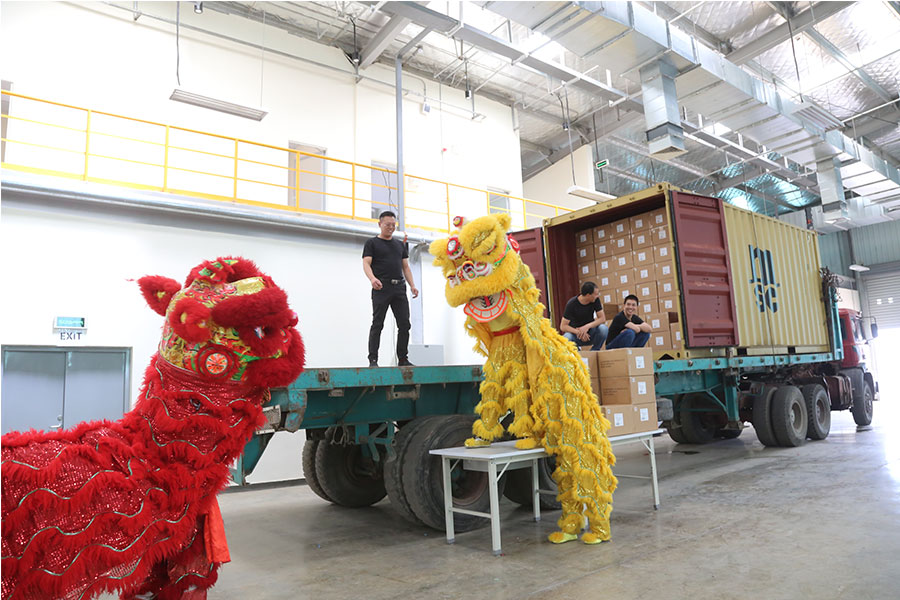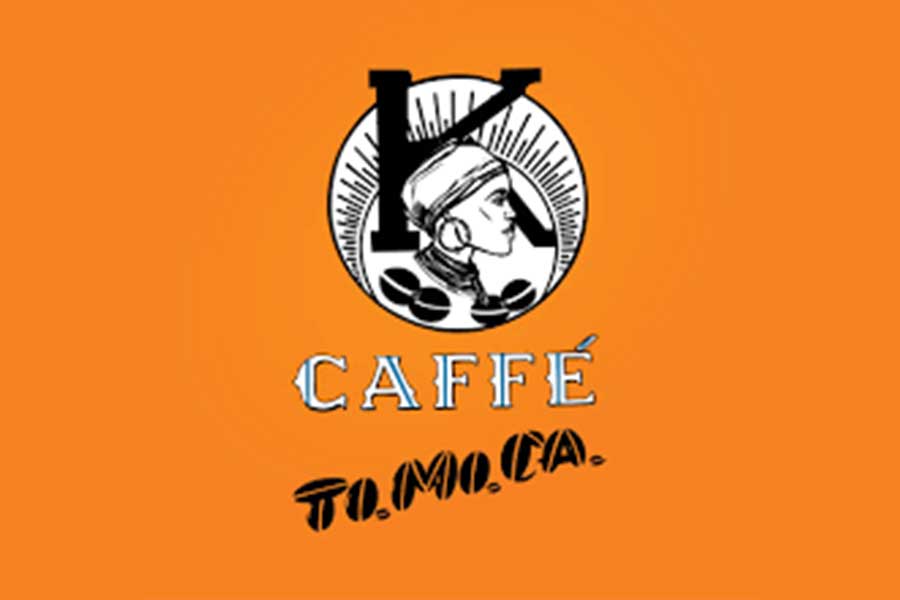
When Tamiru Tadesse came to Addis Abeba almost nine years ago, he was determined to pursue post-graduate studies in control engineering, a subject he spent two years teaching his students at Debre Berhan University.
Tamiru found life in the capital expensive and opted to support himself doing some side jobs.
A coffee trading company hired him as a facilitator for its business at the Ethiopian Commodity Exchange (ECX). Happy with his work, the company later promoted him to Assistant Export Manager, which set Tamiru on a different course in life. It enabled him to understand the nitty-gritty of the value chain in the coffee market, both domestic and international. He created networks with farmers, collectors, suppliers, and exporters.
“Why don’t I use this?” he asked himself.
Born in Bensa Zone, Sidama Regional State, an area known for coffee production, the 34-year old lecturer-cum-businessman reacted quickly. He decided to end his academic career, though he did manage to complete his studies. Tamiru also took some training on coffee tasting to further enhance his knowledge about the cash crop. He started importing ceramics and household materials with the money he had saved while working at the trading company. Three years later, he saved five million Birr, enough capital to launch a coffee supply company.
Tamiru created a network of 350 smallholder farmers, an effort that enabled him to achieve another milestone. He won the second "Cup of Excellence" contest held two months ago in Addis Abeba. The variety he put on for the contest was sold for an astounding 330 dollars a kilogramme, competing against dozens of other suppliers. Another batch, placed fifth, garnered a price of 59 dollars a kilogramme. Tamiru walked away from the contest with 15 million Br.
“Had the two tonnes of coffee been exported at the usual price, the maximum I could have earned was less than two million Birr,” he said, pleased with the outcome.
More pleased was he with his decision to leave behind a career in engineering to pursue the lucrative trade.
His company, registered as a coffee supplier, has so far collected 200tn of coffee.
Alo Coffee Plc, the export company he and his wife established recently with 10 million Br capital, is one of the exporters basking in the success of a record-breaking year for Ethiopia's coffee industry. The cash scrop generated over 900 million dollars in export revenues last year, with the country shipping 248,000tn, mainly to the United States, Europe and the Middle East. The value was 50 million dollars higher than what was reported for the year before, although it was 42,000tn lower in volume.
Such growth came as no surprise. Partly, it is an outcome of changes in the international market.
Ethiopia produced 644,000tn of coffee last year, according to the latest survey from the Central Statistics Agency. Just over 248,000tn of this amount was exported, bringing in 906 million dollars.
A devastating frost that hit the world’s top coffee producer, Brazil, and rising freight costs caused by COVID-19 created supply glitches in major coffee importing countries, including the United States and Germany, leading to surging prices. The price of Arabica coffee, Ethiopia’s main variety, is the highest in nearly a decade, hitting four dollars a kilo.
“We could have benefited more if we were not a price taker,” said Gizat Worku, general manager of the Ethiopian Coffee Exporters Association, attributing the boost in coffee exports to the reforms seen in the market lately.
The last 15 years saw two major changes in the coffee sector.
In 2008, the Ethiopian Commodity Exchange (ECX) was established under the stewardship of Eleni Gebremedhin (PhD). She had left the Exchange four years later of its foundation but ensured coffee was included in the commodities traded on the exchange's floor. It was an explosively controversial decision at the time. Backed by a law that forced farmers to sell their coffee to the primary market, all traders and exporters needed to trade coffee through the ECX, a rule that was later reversed during the administration of Hailemariam Desalegn.
Such was a decision that came into force almost a decade later and had enabled those in the value chain to trade outside of the ECX, and it began to take off in earnest last year.
This has benefited suppliers more than ever, according to Tamiru.
One of these major suppliers is the Oromia Coffee Farmers' Cooperative Union. Founded 22 years ago, with over half a million members, the Union exported 8,400tn of coffee last year, though the figure represents just a tenth of its capacity.
Dejene Hirpa is the deputy general manager of the Union who saw that the change in the laws enhanced incomes for the smallholder farmers and boosted productivity. A farmer in Jimma sells a kilogramme of coffee for 25 Br, nearly double the price in previous years. This epitomises what is wrong with the coffee sector. Before the vertical integration was introduced, producers were compelled to sell a kilo of coffee for 12 Br at the farm. It is cherry beans (unprocessed coffee) farmers sell that needs to be washed, dried and milled, a process that can bring the weight down by up to 70pc. Nonetheless, in coffee-growing areas of Sidama, a kilo is available for 25 to 30 Br, a price eight times lowers than what consumers in the capital pay.
Coffee growers in Guji may have enjoyed even higher income, with a kilo going for 38 Br, up from 18 Br a year ago.
“Coffee is now exported right away, without delays, and farmers are incentivised to produce more,” Dejene said.
Farmers in the Harerge area, who had long abandoned coffee farming to grow khat, are reportedly returning to coffee.
Officials at the Coffee & Tea Authority are wasting no time crediting the recent record-high performance in the coffee trade to what their experts call "vertical integration".
According to Shafi Omer, deputy director of the Authority, it has made coffee more traceable and restored trust across the value chain while making the farmers more profitable.
Vertical integration, responsible for nearly half of all exports last year, is a system that allows exporters to buy coffee directly from farmers or suppliers without the need to go through the ECX.
Previously, a farmer was required to produce a minimum of 20 slots of coffee to sell to an exporter with a seat on the ECX trading floors. That is no longer the case. Cutting down on "unnecessary knots" in the value chain has been instrumental in raising exports, Shafi says.
Exporters are also upbeat about the shakeup, despite earlier apprehension of the changes among leading exporters.
Walid Bagersh, general manager of Tarara Coffee, an exporter also involved in the production of value-added coffee products, was one of these exporters alarmed by the changes in the rules.
Tarara grows coffee on a 1,000ht farm developed by his family, the Bagersh, an iconic name in the Ethiopian coffee sector for generations. Tarara also sources coffee from other suppliers, roasting the beans and packaging them for export. It exports 500tn annually, with a workforce of 50 employees.
It has been more than a year since he has set foot on the ECX trading floor, on Chad St. in the Lideta area, preferring instead to source his coffee directly from suppliers and farmers.
“Vertical integration is more beneficial to exporters that have a better market," said Walid.
Another change that has helped the coffee export is the Coffee Authority's minimum price threshold beginning last year, industry observers say. It was a measure to discourage exporters from trading coffee at below-market prices to earn foreign currency needed for imports. It is a measure that has granted coffee its real value, according to Dejene of the Union. He wants to see the Authority extend the threshold to include suppliers and farmers.
"It must apply to the farmers and suppliers to ensure they benefit too," said Dejene.
Officials of the Authority are also quick to praise the change.
“The minimum price threshold, along with the global coffee market price rise, is the reason Ethiopia recorded its highest-ever revenues from exports," Shafi said.
His counterparts at the ECX are, perhaps unsurprisingly, not convinced that any of the measures taken have contributed to the increase in revenues.
Mergia Bayissa is deputy CEO of warehouse and quality operations at the ECX. Neither he nor his colleagues are thrilled about the shift away from their trading floor, downplaying vertical integration's contribution to the growth in export revenues. The fragmented nature of vertical integration makes it difficult to gather data and keep records.
Against such a backdrop, however, the ECX is still the major avenue for exporters. Over 218,000tn of coffee valued at 23 billion Br was traded through the ECX last year, around 60,000tn of this was sold in the local market while the remainder was exported, representing 64pc of coffee shipped abroad.
Mergia did, however, admit the Exchange's hold on the market is waning. Officials of the ECX expect vertical integration to gain more ground in export this year, leading ECX's share to drop slightly to 60pc.
Exporters have some fears too.
Though vertical integration has been working great for him, Walid sees that it might do more harm than good to small-scale exporters, who have limited resources and fewer connections on the supply side. It is Dejene and his members who are on this supply side. He sees a long way before farmers reap the full benefits of vertical integration and is cautious about the increasing involvement of traders and exporters.
“This might create unfair market competition if not supervised properly,” he said.
Despite the controversies and changes in the coffee trade, it appears that the good times will continue for companies like Alo, which has signed contracts for the export of 500tn this year, mostly to China and Hong Kong. Over a third has already been shipped out. Tamiru is in high spirits. Winning the Cup of Excellence contest will likely do wonders for his business. He hopes things only get better from here.
The Authority is equally enthusiastic about a good year ahead. It targets the export of 280,000tn of coffee and revenues of a little over one billion dollars this year. The performance so far is encouraging – over 115 million dollars was generated in July alone.
PUBLISHED ON
Aug 21,2021 [ VOL
22 , NO
1112]

Featured | Apr 22,2022

In-Picture | Jan 11,2019

Radar | Feb 06,2021

Radar | Feb 10,2024

Fortune News | Jun 20,2020

Dec 22 , 2024 . By TIZITA SHEWAFERAW
Charged with transforming colossal state-owned enterprises into modern and competitiv...

Aug 18 , 2024 . By AKSAH ITALO
Although predictable Yonas Zerihun's job in the ride-hailing service is not immune to...

Jul 28 , 2024 . By TIZITA SHEWAFERAW
Unhabitual, perhaps too many, Samuel Gebreyohannes, 38, used to occasionally enjoy a couple of beers at breakfast. However, he recently swit...

Jul 13 , 2024 . By AKSAH ITALO
Investors who rely on tractors, trucks, and field vehicles for commuting, transporting commodities, and f...

Jul 12 , 2025
Political leaders and their policy advisors often promise great leaps forward, yet th...

Jul 5 , 2025
Six years ago, Ethiopia was the darling of international liberal commentators. A year...

Jun 28 , 2025
Meseret Damtie, the assertive auditor general, has never been shy about naming names...

Jun 21 , 2025
A well-worn adage says, “Budget is not destiny, but it is direction.” Examining t...